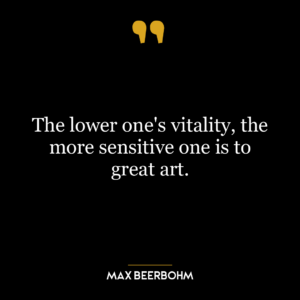This quote suggests that when a person is excessively busy, it’s not a sign of productivity or energy, but rather an indication of lacking vitality. Vitality here refers to the energy, spirit, or spark that makes life interesting and enjoyable. It implies that when one is constantly busy, they are missing out on the essence of life which is to enjoy and experience it fully, not just to work or study incessantly.
In the context of a school or college, it suggests that students who are always busy studying or doing school work may be lacking the energy or enthusiasm to truly engage in life. Similarly, in the context of a church (kirk) or market, it implies that those who are always busy working or doing business may be missing out on the deeper, more meaningful aspects of life.
Applying this idea in today’s world, especially in the context of personal development, it’s important to find a balance between work and life. Being continuously busy may lead to burnout and a lack of vitality, which could affect one’s mental and physical health. It’s crucial to take time for rest, relaxation, and personal interests to maintain a healthy level of vitality.
Moreover, this quote can also be interpreted as a critique of societal norms that equate busyness with success. In today’s fast-paced world, people often feel pressured to be constantly busy to prove their worth or status. However, this quote challenges this notion by suggesting that extreme busyness is not a sign of success, but rather a symptom of lacking vitality.
In terms of personal development, it encourages individuals to focus on quality rather than quantity, on being rather than doing. This means prioritizing tasks that truly matter, taking time for self-care and leisure, and not being afraid to say no when necessary. It’s about nurturing one’s vitality by living a balanced and fulfilling life, not just a busy one.





